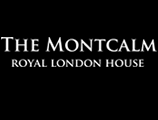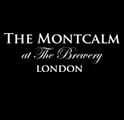London has many monuments dedicated to the people who helped shape the city, and often the world in the process. As a city of political, scientific and cultural power, it’s no wonder that there are so many monuments to these influential figures. That being said, the majority of the monuments throughout London are dedicated to influential men. Whilst this may have something to do with the general power balance seen historically throughout the world and it’s leaning in the favour of males, there are many monuments and buildings dedicated to women.
With International Women’s Day falling on the 8th of March, institutions such as the South Bank Centre with their Women Of The World Festival are exploring female identity and its influence on the world, giving London Hotel offers guests a chance to explore some of the most influential women in the world. Below are just a few of the many influential women who have shaped London, and where you can find out a little more about them in the city.
Queen Victoria
Queen Victoria is probably one of the best-known queens of England. Reigning for much of the 19th century and up until 1901. Her influence on the architecture and the vision of the British Empire saw the city of London’s influence grow exponentially throughout the 19th century. You can find memorials to Victoria located across the city, especially the statue of her located across from Kensington Palace, and in front of Buckingham Palace.
Margaret Thatcher
The controversial Conservative leader from 1979 up until 1990 is still memorialised across the city, not least at the West London members bar and nightclub Maggies. This bar and nightclub poke fun at the 80s’ era through its DJ sets and cocktail list, giving a decadent retro 80s’ feel to the swish drinks list. More seriously, however, Margaret Thatcher’s influence can still be seen through the conservative parties economic policy and much of the newbuild housing that can be found across London.
Ada Lovelace
Daughter of Lord Byron, the famous poet, Ada Lovelace is thought to be the protogenic founder of modern computer science. Her work in maths and engineering led to her and Charles Babbage creating an “Analytical Engine”, the language of which Ada Lovelace translated, thus founding what is thought to be the first instance of computer programming, long before she and her mentor’s concepts became ingrained within the modern world. Guests at the Montcalm hotel Chiswell Street can find a memorial plaque on the front of the house at which Lovelace used to live at 12 St James Square.
Boudica
The fearsome leader of the Iceni Tribe led her Celtic people to victory against the Romans in either 60 AD or 61 AD. Her encampment area is thought to be located in Epping Forest, where she gathered her armies to attack towns and cities across the East of England. Guests at eastern located business hotels in London can visit Epping Forest via trains from London Liverpool Street Station to Enfield.
Emmeline Pankhurst
Emmeline Pankhurst was the leader of the Suffragette movement from 1903 and is probably one of the most important political figures in the world. As the head of the Women’s Social and Political Union, a movement she founded, Emmeline Pankhurst staged protests, marches and even crimes on the streets of London, all so that women would be allowed to vote in elections. Without her sacrifices and insight, the UK might’ve been a far less fair country indeed.
Amy Johnson
Amy Johnson is one of the most famous aviators in the history of flying. Having trained at the London Aeroplane Club, Amy Johnson was the first woman to fly solo to Australia and was an important player in Air Transport during World War II, transporting important air cargo through the war-torn skies of Europe. Sadly, Amy Johnson passed away in 1941, when she crashed her plane, an Airspeed Oxford Plane from Blackpool to Oxford.
Nell Gwyn
Nell Gwynn was a philanthropist, actress and orange seller(!), having caught the eye of Charles II as a market trader at the Theatre Royal Drury Lane, she soon became the first woman allowed on stage to act, before becoming the King himself’s mistress. Nell Gwynn was also key in the foundation of the Royal Chelsea Hospital, which was opened in 1692. Guests at 5-star hotels London can still visit the beautiful gardens around this hospital, which are home to the Chelsea Flower Show every summer.
Diana, Princess of Wales
Diana Princess of Wales passed away in a car crash in 1997, but her memory still lives on as a loving and caring member of the Royal Family and massive proponent and philanthropist for international charities across the globe. The mother of princes Harry and William, Diana is memorialised in the beautiful Diana memorial playground in Hyde Park, as well as through the beautiful fountain that runs through the park. London hotel offer guests can visit these spots and enjoy the beauty of the fountain and imagination encouraging Peter Pan inspired playground, all while remembering the legacy of the Princess and celebrity.
Rosalind Franklin
Rosalind Franklin was a Cambridge educated scientist who made her name as a research associate at King’s College London. It was during her time at the prestigious university that she began experimenting with X-Ray diffraction, and eventually discovered the double helix shape of DNA.
Angela Burdett-Coutts
This 19th-century philanthropist is known for her work in setting up scholarships and endowments for struggling students. Alongside famous Victorian novelist Charles Dickens, Angela Burdett-Coutts set up one of the first halfway homes for young women, giving them a chance to start afresh and improve their lives.
Florence Nightingale
Florence Nightingale came to the attention of the British public for her tireless work helping wounded soldiers during the Crimean War. After this, she continued her work as a nurse in London, setting up a secular nursing school at St Thomas’ Hospital, which still runs today. She then managed to abolish the harsh prostitution punishments that the Victorian government were implementing, and through all her work influenced the way that women were viewed and encouraged in employment the nation over.



























